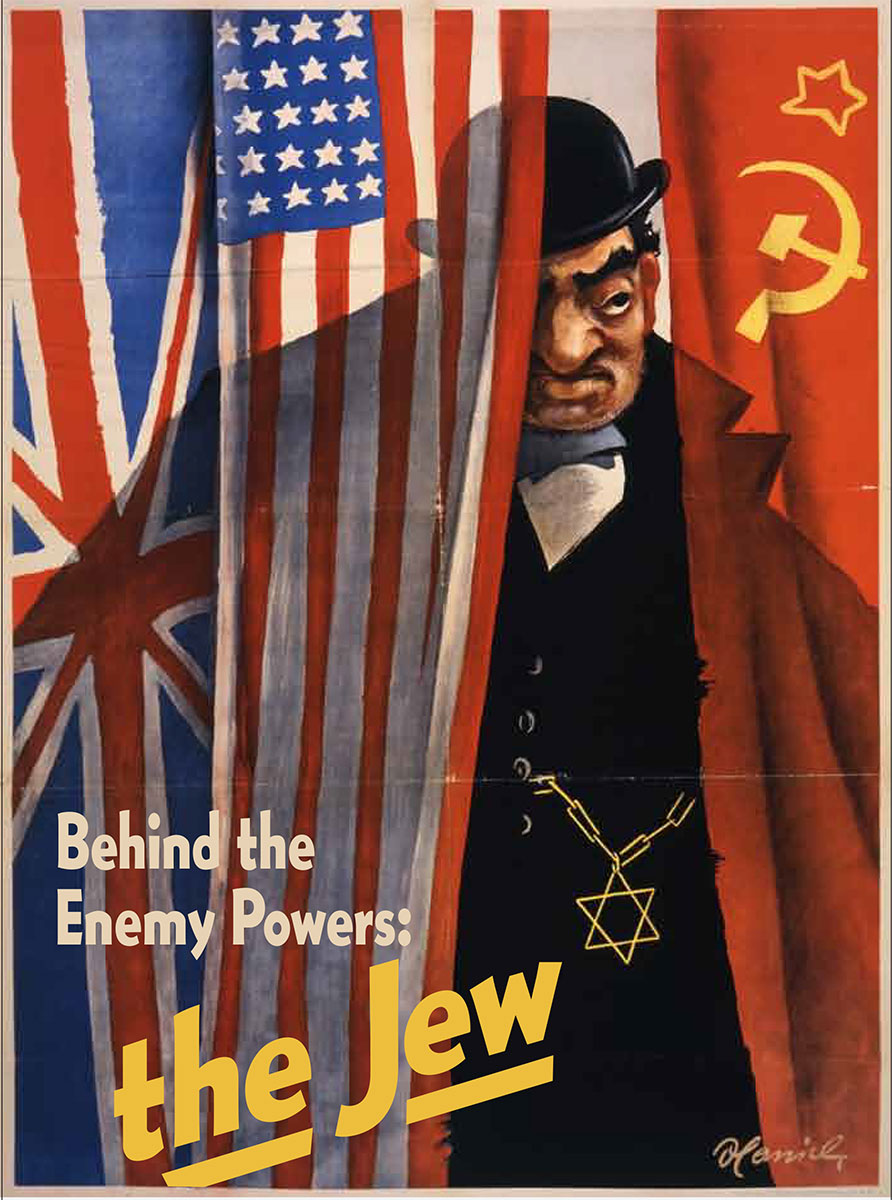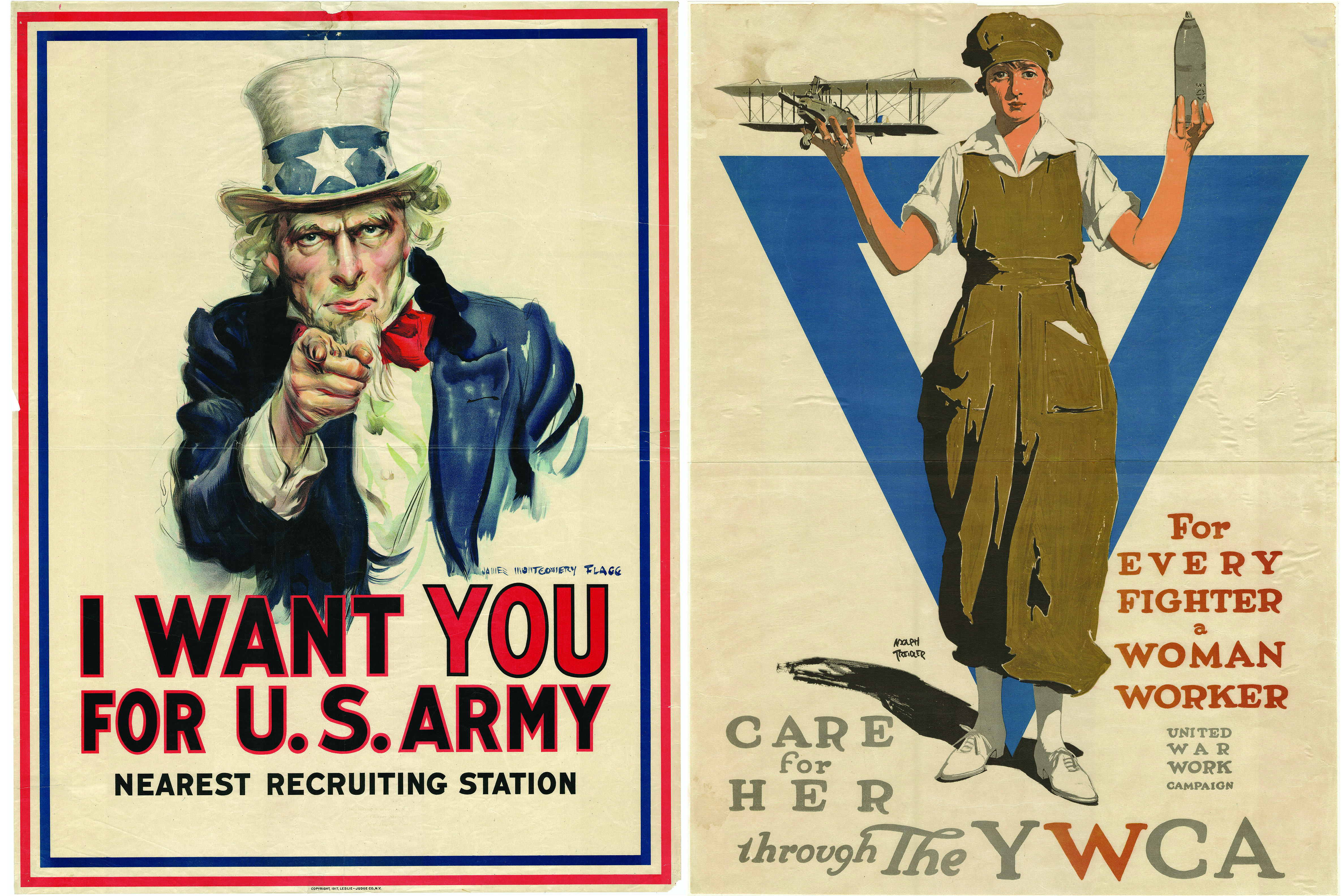Propaganda is the spreading of ideas, information, or rumor for the purpose of helping or injuring an institution, a cause, or a person. It is when ideas, facts, or allegations are spread deliberately to further one's cause or to damage an opposing cause.
One of the most horrific examples of the use of propaganda took place in Germany in the 1930s and 40s. The Nazi Party effectively used propaganda to push their agenda, particularly against Jews. Their campaign worked to dehumanize the Jewish people which allowed them to launch their anti-semitic efforts which culminated in genocide in the Holocaust. Nazis even had a department in their government to oversee propaganda - The “Ministry of Public Enlightenment and Propaganda.”
More positive uses of propaganda can also be found during World War I and II. For example, during WWI, “Uncle Sam” was used to recruit volunteers to join the military (“I want you!”).
 Similarly, during WWII, propaganda campaigns were used to support the American war effort. For example, in 1943, the “We can do it!” campaign was launched to encourage women to take on non-traditional roles to help the war effort while men were off fighting in the military.
Similarly, during WWII, propaganda campaigns were used to support the American war effort. For example, in 1943, the “We can do it!” campaign was launched to encourage women to take on non-traditional roles to help the war effort while men were off fighting in the military.
The poster was rediscovered in the early 80s and has since been used to promote feminism, expanding the original message of female empowerment.
Propaganda can be verbal or or written messages. However, some images have become iconic examples that have been used in multiple situations to support a common cause. For example, the image of Che Guevara, a Latin American revolutionary from the 20th Century, has become a symbol of almost any radical group.
While Guevara was Argentinian, his efforts were focused on supporting the communist revolution in Cuba that resulted in Fidel Castro taking control of the country. Nevertheless, his image has become legendary and he is now connected with any political effort rooted in communism, anti-capitalism and anti-imperialism.
Propaganda isn’t just something from history. It continues to be used to push agendas from all parts of the political spectrum. One recent example is Tucker Carlson’s recent interview of Russian President Vladimir Putin. In February 2024, Carlson, a conservative newscaster and talk show host, traveled to Moscow to interview Putin. This sparked an immediate media outbreak and outrage from the public because Carlson gave a platform to one of the major contributors responsible for unleashing the brutal and devastating war currently still happening in Ukraine and allowed him to spread his narrative, widely viewed as false, that supports the Russian offensive against Ukraine.
This situation raised the issue: was Carlson giving a platform for propaganda or interviewing the leader of Russia to be able to share information with the viewing public? Many view Carlson's interview as a failure - and that rather than challenging Putin, it ended up being a way for Putin to legitimize his war against Ukraine by letting him spread false information about the reasons for the war. Many also saw Putin’s decision to accept the interview because Carlson had already been very critical of the US’s role in the war, so he knew he was going to be on a platform that would allow him to spew misinformation.
Many believe that propaganda will be even more powerful with the advent of AI that will be able to spread disinformation by creating fake content that will look real and influence people. It will become even more difficult to decide what is true and what is false.
How can we protect ourselves from being influenced by propaganda? One of the best ways to not be influenced by propaganda is to understand what it is and how it can be used. By recognizing how it works, we can make sure that we reach decisions based on less biased information. We can make better decisions about what we believe and support if we:
- Educate ourselves
- Fact check sources - don’t just accept what is being told to you.
- Be open to discussing issues with people with different perspectives.











No comments:
Post a Comment